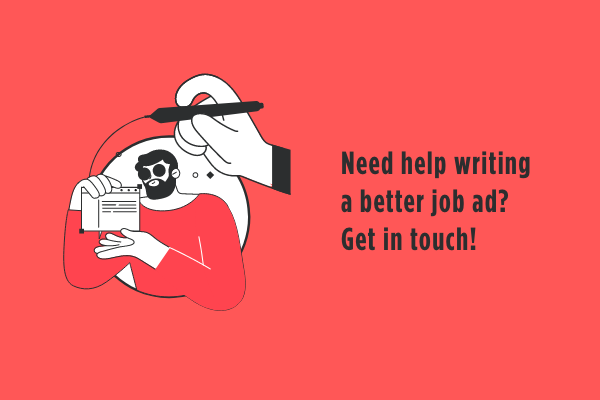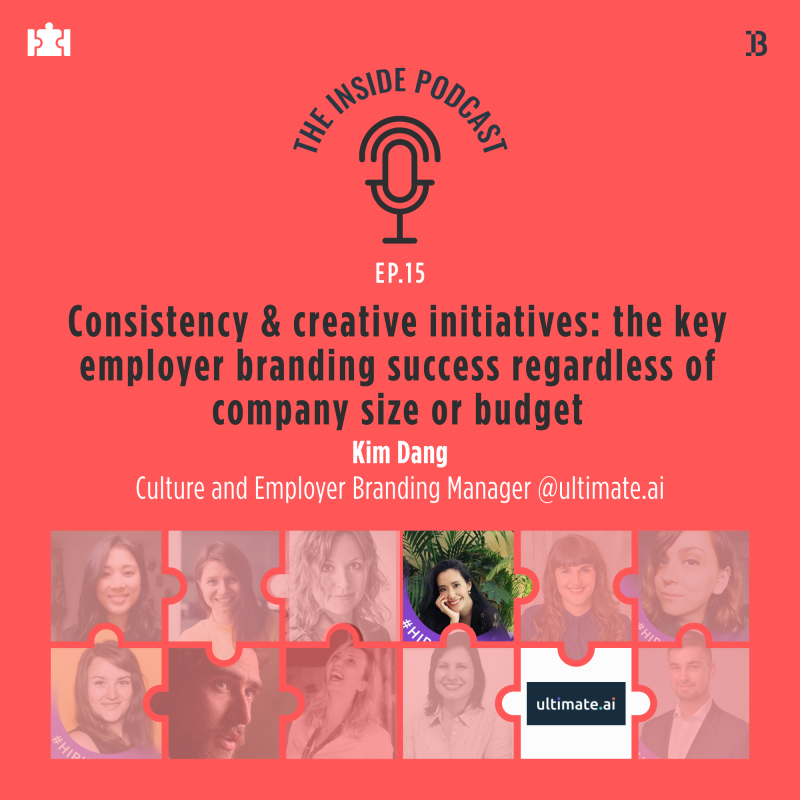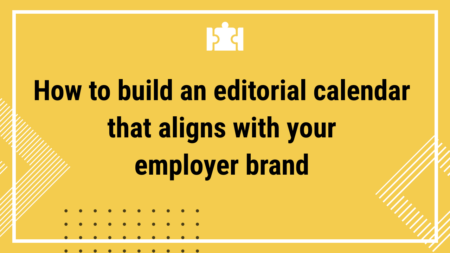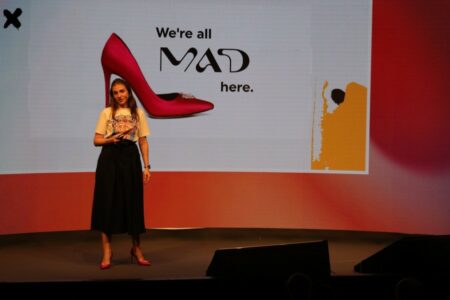Overview
Let’s talk about employer branding success! In Ep. 15 of our Inside Podcast, the last of Season 1, we’ve had the pleasure of speaking with Kim Dang, Culture and Employer Branding Manager at ultimate.ai. We talked about the importance of being consistent when doing employer branding, initiatives in the tech industry that every company should have, and we were finally confirmed that not only the rich can afford employer branding. Although it doesn’t manifest in revenue immediately, it pays to embrace it because employer branding paves the way to a more transparent and stronger company culture in the future.
What you’ll learn by listening
- Employer branding success initiatives in tech
- Changing perceptions about HR
- Core differences between company purpose and employee purpose
- Employer branding: on the side of HR or on the side or marketing?
- HR is about goals, marketing is about tools, employer branding is about people
- Only big companies can afford employer branding – true or false?
- Employer branding doesn’t manifest in revenue immediately, but it gives consistency in the future
About the company
ultimate.ai is the leading customer service automation platform. We use deep learning to transform how people work in customer service. Solutions like ours are driving the wave in intelligent CRMs. ultimate.ai’s proprietary deep learning technology enables customer service automation in all languages. Automate first-line customer contact across chat, email and social; increase agent productivity by over 30% for complex cases; and continuously learns to improve the quality of automated and assisted support.
For our enterprise clients, we lower costs and significantly boost customer experience. For the agents, we improve job satisfaction and provide freedom to focus on what really matters: the customer. In short: we help businesses scale their customer service with artificial intelligence.
Enjoy listening to Ep.15 of The Inside Podcast on Spotify!
Podcast transcription – What’s the key to employer branding success?
Georgiana: Hi everyone! This is Georgiana and you’re listening to Employer branding: The Inside Podcast. In today’s episode (the last one of Season 1), we will talk about employer branding. Hi, Kim! Thank you so much for joining us today. Kim Dang currently works at ultimate.ai as People, Culture, and Employer Branding Manager. I mean, your role is self-explanatory. But please tell us, exactly what do you do on a daily basis, Kim?
Kim Dang: First of all, thank you so much for inviting me. I would love to talk about employer branding, definitely my passion. So yeah, the role is kind of a little bit of everything. Ultimate.ai is quite a small startup at the moment, but we’re growing very fast. I think just this month alone, we got like nine people to join us, which pushed our number of employees to a total of 60-70. I am, so to say, the second person that manages the team, and I take care of pretty much everything from contracts and operations to the culture factor and a little bit of development. Also, the only thing I pretty much don’t do is recruiting.
Georgiana: Okay. Okay, so you were fortunate to sort of do only employer branding.
Kim Dang: And also operations and other things, except for recruiting. Exactly.
Georgiana: Got it. So if you were to choose between people, culture, and employer branding, which would be your favorite?
Kim Dang: To me, personally, I think definitely employer branding. I started out – in my, you know, HR journey – with recruiting and employer branding, and I absolutely loved it. So employer branding is definitely my favorite. However, in terms of importance, people are definitely the most important part of the job. And that applies to many cases, you know, not just in my case, but also applies in terms of – you know – how the company is run. So that’s why I decided to expand my knowledge to people operations and build management by taking up this job at Ultimate.ai.
Georgiana: Super. And if you weren’t doing employer branding, what would you be doing in your life?
Kim Dang: I actually tried out a lot of stuff, because I’m not really a “what if” person, you know, asking myself what happened if I hadn’t done this? I tried out a lot of stuff, mostly in the realm of communications and events. I used to work in PR in a fashion agency, and also a lifestyle agency, and so on. If I had to guess, I think I would have gone for something like events or social media.
Georgiana: Yeah. Okay, events are not necessarily a good area to be working in at the moment. But I can understand why that’s something nice to go into. What would you say is your favorite employer branding initiative or project so far?
Kim Dang: During my time, at my old company commercials, I was very lucky to win the chance to start a lot of projects from scratch. I was in full employer branding mode, just in time when the pandemic hit. So it was very, very challenging. It challenged me in a lot of ways. Um, but if I were to say if there was an initiative that I like or rather multiple projects that I really like, and I’m most satisfied with, that would be the multiple projects targeting the tech audience that I have done.

The company I’ve worked for really struggled to hire a certain type of engineer at that particular moment. And the pandemic didn’t really make it any better. And the pandemic also led to the fact that any of the offline projects or offline initiatives were absolutely impossible to be executed. I had to brainstorm a lot of initiatives that worked with engineers in a particular moment, for example, redoing the entire career page; to target them, we put our GitHub online.
We talk about our tech blog, and also of initiatives with the meetup groups, how we organize online events, and we have to rethink every time how do we engage people because a lot of us have this kind of online event exhaustion – no one wants to be at 6 pm listening to a two-hour talk on their screen. We have to rethink that a bit. Okay, how do we make this interactive, how do we make this fun? Those are the things I would say that I’m most happy about because it was challenging for me personally. It turned out to be pretty good because we ended up just hiring people from those events.
Georgiana Gitschuk: Okay. According to a recent study done by Gartner, HR will be responsible for bringing people back to the workplace. Do you agree with that?
Kim Dang: I totally agree. I think it’s a no-brainer. For me, this statement seems absolutely normal. It’s like a fact for me. What doesn’t appear to be a fact to a lot of people is the perception of HR. Yeah. I think a lot of people still think of HR, as you know, just the people who do the payroll, you know, people will do the contract or the coffee when you know, the office runs out, unfortunately.
So if HR is done right, we are actually the people who, in the best-case scenario, are involved in every single decision that is made about running a company and obviously, getting people back to the office or you know, getting people remote. That is definitely HR stuff, and we definitely own the workspace.
Georgiana: I’m looking forward to more companies adhering to that, actually. And there are also some other things that I’ve been reading and listening to a lot these past few months, which I think have become the mantra of the year. And that is to motivate your employees with purpose, not profits. What is your take on this? Because, as I have discussed and seen, as I speak to so many HR people, a lot of people change jobs just for a few extra hundred euros. Why does that happen?
Kim Dang: Yeah, I think personally, I think if there are cases where people leave jobs for a few hundred bucks extra per month, or per week, or even per year, I think it is just a nice to have; one of the bigger issues though is the old job itself. So they just happen to get a few extra bucks, you know, per month, or per year, that means that the old job has to be really, really bad. It could be for financial reasons, right? They may feel that they are underpaid, which eventually leads to the frustration of the workplace for not being appreciated. So at that point, it’s not just about the money anymore. It’s about the absence of appreciation.
However, I think that frustration can be triggered by multiple other factors, for example, what you said about the lack of purpose, right? And I think there’s a lot of companies that mistake the company’s purpose in the industry with the employee’s purpose. So a person’s purpose is very unlikely to be revolutionized in an industry, nobody wakes up thinking that I’m going to change the way people work today. Unless you’re C level or very, you know, high up in the company hierarchy. A normal person, a normal employee’s purpose at work is, you know, the answer to the question, what did I do today? And does my contribution matter to the company, and if they are aware that they are doing something great for the company, and their contribution actually manifests itself in whatever form it is, like you compliment, or, you know, compensation, then yeah, that’s the purpose.
And that’s why, when I look at a company career page, and they just splash “come to us and change the world, blah, blah, blah”, I’m like, no, that’s not the point. They don’t care about that. Most people don’t care about whether or not they contribute. And that’s it.
Georgiana: Would you say employer branding is more on the side of HR, or on the side of marketing?
Kim Dang: Personally, for me, I would say HR, of course. It has always been HR. Because in marketing, you have a different kind of target audience, you’re targeting cell buyers, for example, you’re targeting the general public for branding. With employer branding, you target a very particular group, you’re targeting someone that’s totally different, like totally irrelevant for marketing itself. It’s really hard to be in a team where the rest of the team works on targeting a particular group and you just totally go in a different direction. So for me, marketing is about the tools, but HR is about the goal. So you should be under the organization that actually gives you the goal.
Georgiana: Just to shift our discussion a little bit, what is a book that you found influential?
Kim Dang: Influential, I wouldn’t say, but recently I finished reading a book called Coders – who they are, what they think, and how they change the world, by Clive Thompson. It is a very interesting book. I’m not saying that coders are a different breed of human that we need to study, but it really shines a light on developers and the tech industry in general, they talk a lot about ethics, it talks a lot about how software is going to change the world, and so on. As someone who works in the tech industry, I find it absolutely mesmerizing.
Georgiana: Yep. Cool. That’s something really useful to add to my reading list. Thank you. And if you had the right sum of money in hand, what would you implement in a company in terms of employer branding?
Kim Dang: I have never been that lucky to be the owner of a very huge budget. I never really thought about it, because I’m always in saving mode. But if I were to have the right amount of money, I would go for something like Heineken’s employer branding campaign. They have this huge campaign, that when you google “Heineken employer branding”, you will definitely see it, as they created a whole landing page for it. It’s super funny. So if I were to actually have the money, and, you know, be in the right company, because that kind of huge campaign doesn’t work for any kind of company; I wouldn’t do that for Ultimate.ai, for example, because it is mostly relatable to companies that have a b2c product. So if I were to have the right amount of money, I would do something like that. Something huge, impactful. Yeah. But yeah, and I would also spend that money to actually employ creative agencies.

Georgiana: I can confirm, because we, as an agency, are often tasked with creating exactly this type of employer branding campaign with landing page creative concepts and everything. And I have to admit, I’ve seen huge differences when it comes to a budget, sometimes you can be very creative on a shoestring budget, but sometimes with the right amount of money, you can do something that’s an absolute Wow. Yeah. And just to get to the end of our podcast, here’s a question I try to ask all of my guests. And that is an employer branding myth that you can debunk. I’m really curious.
Kim Dang: Um, I haven’t heard a lot about employer branding myths. But if there is something that I say that is generally perceived in the public, but I don’t think it is correct, it is that only big companies can afford employer branding. Only companies that have a hiring problem should care about employer branding. This is something that I think is wrong. I started out in employer branding with a very small budget, and it worked. I think this is something that companies should definitely take into consideration.
I think the head of recruitment, or leaders, take employer branding into consideration when they have a plan and just wait until they have a pipeline problem for a certain position and find an ad hoc solution to it; whereas they should really invest in creating a brand. And I think this is something that, you know, applies a lot to product companies, because I do know a lot of companies that focus mainly on lead generation marketing, trying to sell products ASAP.
However, I think the situation is actually getting better. Now, I’ve seen a lot of companies starting to hire brand designers or employer branding managers. So that’s definitely getting better. But sometimes, during the day-to-day business, you can definitely forget that, hey, we need to create a brand that is long-lasting, because employer branding doesn’t manifest in revenue immediately, or even like in pipeline immediately. But it gives you consistency in the future. So that’s something that I think is not a myth, but I think that it’s still a general perception that employer branding is only for the rich.
Georgiana: Yeah, exactly. And it’s all only something that’s done sometimes, whenever there’s a crisis. Oh, maybe we should do something on the employer branding side. No, you have to do it all the time. All the time. That’s the role of it. And that’s how it’s supposed to be done. So yeah. I agree. Kim, thank you so much for talking to me today.
Kim Dang: Welcome.
Georgiana: It’s so nice to be speaking to people who are doing employer branding; as I said in some of my previous episodes, you are sort of a rare breed, employer brand managers 🙂 Talk to you soon, hopefully for a meet-up. Thank you, everyone.
For more podcasts and content on employer branding-related things, check us out on employerbranding.tech. You can also find our podcasts on Spotify and Apple Podcasts. Until the next time! Stay tuned! Bye!






